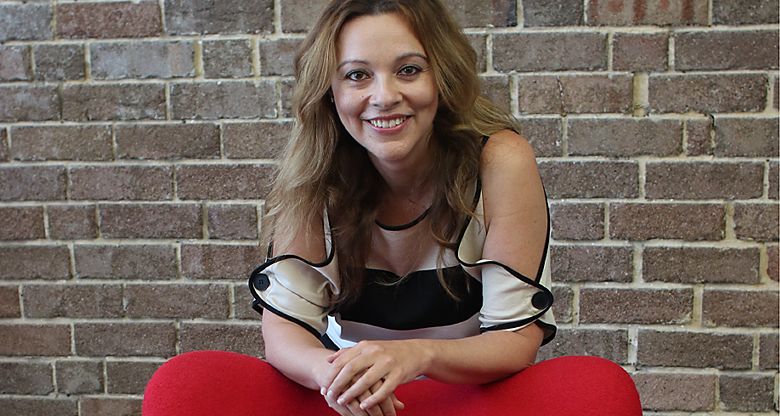Pubs were among the most dramatically impacted sectors when Australia went into national lockdown in March 2020. It was unprecedented times for the Laundy family, who have been running pubs along Australia’s east coast for four generations.
Danielle Richardson, daughter of co-founder Arthur Laundy Junior, had just left the corporate world to join her siblings and father in the family business. “I am coming with a different lens on how to improve the business,” says Danielle. Responsibilities of her management role span HR, consistency of procedures and standards across their 30 venues, improving customer service, and working at the bar to understand customers and their expectations.
Resilient under pressure
In the lockdown’s early days, the family had to manage having some staff on JobKeeper while still keeping the wheels turning. That included moving the front bar to bottle shops to keep on as many staff as possible. Despite that challenge, the lockdown and reopening also gave the family a rare chance to review their operations and consistency of the customer experience across the group.
Danielle says, “in the earlier stages of the pandemic, we felt an enormous responsibility to look after our staff and innovated like many within the sector to remain operational to the extent we could.”
With many of their more than 1,000 staff being casual or transitory, keeping them abreast of what was happening was challenging. Daily Zoom meetings with key personnel and regular meetings with area managers helped ensure clear and consistent messaging to staff.
That was particularly important whenever clusters and snap lockdowns necessitated implementing ever-changing COVID-Safe requirements within a matter of hours. Forming a WhatsApp group was instrumental to keeping frontline staff updated and being flexible to make the most of the opportunities.
Adapting to changing customer behaviour
As CommBank’s 2021 Consumer Insights report finds, consumers are emerging from the pandemic with changed behaviours and values. Many now want to shop locally and support local businesses. Connecting with friends and families has also become more important. Danielle’s experience across Laundy Hotels’ establishments exemplifies this experience.
A majority of the consumers surveyed for our new report also agree that consumer-facing businesses, such as pubs, clubs and retailers, adapted well to the disruption and consumers’ changing needs.
“We had become their Saturday night offering instead of going into the city. They wanted to drink, but at their local, and wanted to interact socially,” says Danielle. “Our offering, therefore, had to change because patrons were looking for something different.”
Focusing on the customer experience meant delivering what customers were now looking for from their local. Food and drinks menus were reviewed, and meeting customer demand for cocktails necessitated training staff and sourcing new glassware.
Sales quadrupled as people bought cocktails and higher quality bottles of wine. “People are looking for better from their local”, says Danielle. “That is an area we really shifted. Our offering had to rival what they were used to getting in the city.”
Unearthing customer expectations
To help better understand their new patrons, the family introduced area managers into the structure and employed more marketing people to work alongside them. Area managers are conduits for feedback from the frontline staff interacting with patrons daily, as are every family member from Danielle through to her father, who is still at the helm after 60 years.
Having been in the industry for so long, the family are well networked with other pub owners, plus their suppliers present quarterly reviews on shifting tastes. Many trends originate in the US and UK, so Google tools are another resource that guides how they should adjust their offering to align with customers.
The new normal
The pandemic allowed the Laundy family to step up their game. This leads Danielle to believe things won’t go back to how they were before “because our offering is now better”. While young people are now returning to the city for a night out, they return earlier to spend the last few hours in their local because “they see us as home”.
Danielle is intent on keeping the new patrons. They are exploring loyalty programs and “constantly working on what the customers loved when they were coming in and making sure we still have it right”. She wants to entrench the pubs, which now accommodate DJs and dance floors, as a real destination for the whole evening.
Customer experience at the centre
It all comes back to the customer experience, which is regularly discussed with staff. Staff need to be understanding and gentle because customers’ priorities have changed.
CommBank’s Consumer Insights report found that consumers’ experience of the pandemic varied. Although the impact was not as bad as initially feared, some people's mental, physical and financial well-being was affected, and a majority expect businesses to have policies in place that protect staff and customers from the spread of the virus. Danielle notes that while some people are comfortable sitting at the bar talking, for example, others now prefer to order from their tables.
The focus is on how customers feel when they walk in the door and ensure they enjoy themselves. “Our staff need to be smiling and make their experience better and provide the convenience patrons are looking for,” says Danielle.
Danielle describes the hotel sector as resilient and even innovative. “Not many industries can be shut down and bounce back the way we have and have made things better for customers.”
Sign up to the Women in Focus newsletter for updates on our community and events, and more content like this.
The Consumer Insights series aims to more deeply understand the mindsets, behaviours and intentions among consumers across the economy. We encourage consumer-facing businesses to read the inaugural report to better understand how the expectations of their customers have changed due to their experience of the pandemic.







